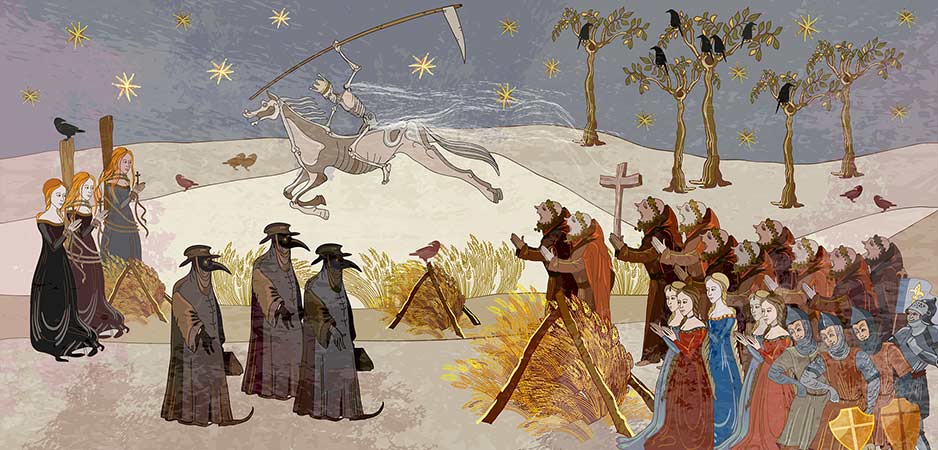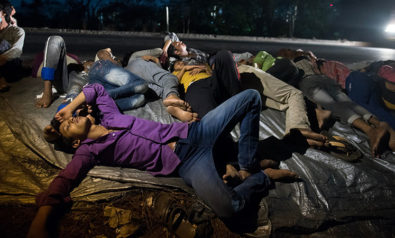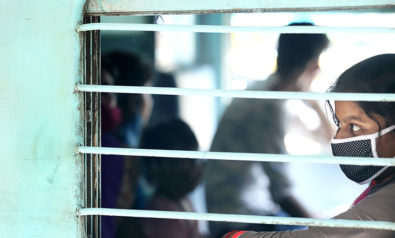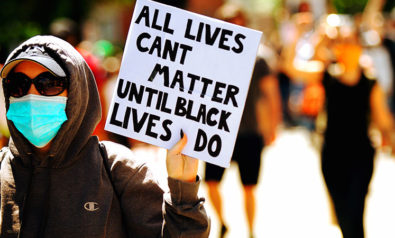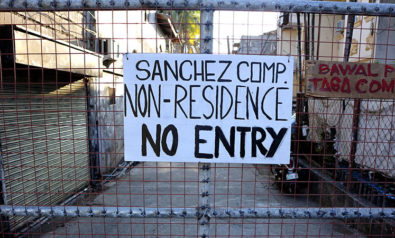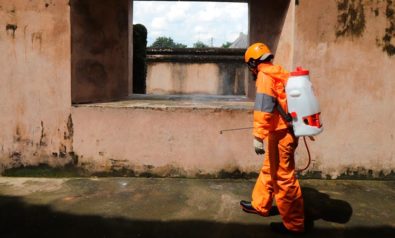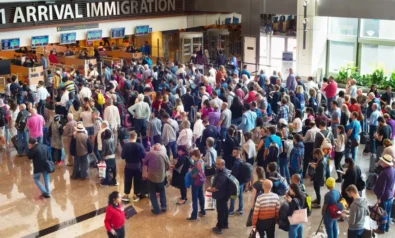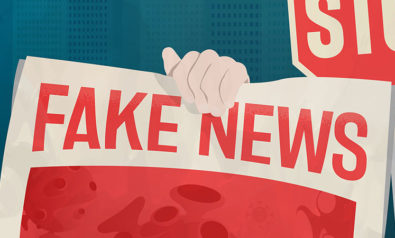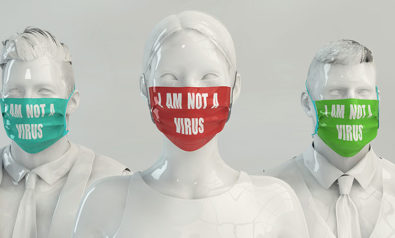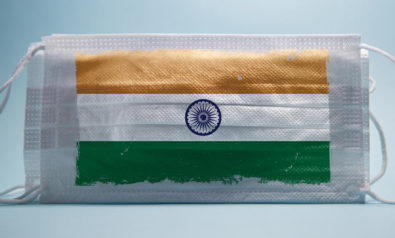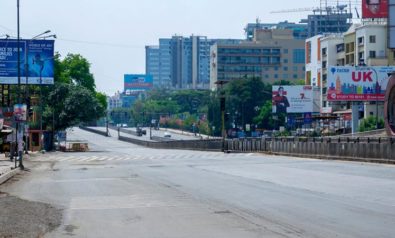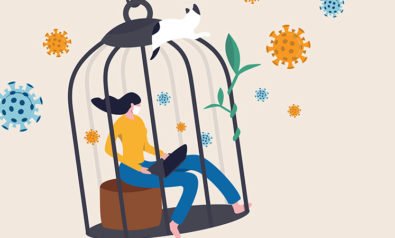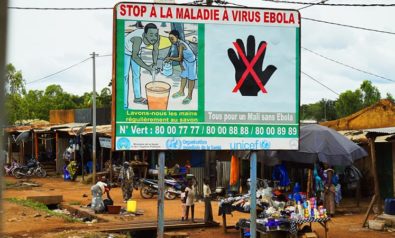The bubonic plague pandemic — the Black Death — was arguably the greatest catastrophe to hit Western Europe in the Middle Ages, killing tens of millions of people or around a third of the continent’s population. The disease originated in the vast plains of central and eastern Asia, from where it was carried to the trading outposts of the European merchant cities. Borne by rats hosting infected fleas, the plague was brought into Western Europe via the port of Kaffa on the Crimea by Genovese merchant ships that dispersed it throughout the Mediterranean ports.
From there, the plague traveled north to finally reach the German lands. The arrival of the Black Death in German towns triggered a new wave of deadly anti-Semitic pogroms. Jews were accused of poisoning wells and streams, tortured and burned alive.
Everything Is Under Control
In 1853, a yellow fever epidemic hit New Orleans, one of the most important ports of the American South. Within a few months, thousands of residents of the city had died. Yellow fever is spread by mosquitoes thriving in a warm, humid climate. At the time, however, this was hardly common knowledge. Instead, the good citizens of New Orleans blamed convenient human targets: Irish and German immigrants accused of not only “practicing bad hygiene” but also of living “in miserable conditions” that made them “highly susceptible to the disease.”
Then, in 1918, a new epidemic hit the United States, this time a particularly vicious strain of influenza. It was part of a global pandemic of what became known as the Spanish flu — Spain was one of the hardest-hit countries — that killed anywhere between 50 and 100 million worldwide and more than 650,000 in the United States. At the time, the US was fighting in the First World War. Under the circumstances, keeping up morale was paramount. As a result, public officials made a concerted effort to play down the disease.
In town after town, local officials assured the public that there was no need to worry, that everything was under control, and that public health officials were perfectly prepared to keep the disease in check. And even when it became blatantly obvious that this was not the case, “officials almost daily assured the public that the worst was over.” Unfortunately, it wasn’t, and more people died.
An even worse case of denialism happened in San Francisco during the 1900 outbreak of the plague, which originated in China and quickly spread abroad. Once again, the transmission occurred via merchant ships docking at California ports, particularly San Francisco, which had a large Chinese population, on the way back from Asia. Yet at the time, both city officials and the governor of California denied that there was a problem. The reason was simple. There was great fear that the news would cause harm to California’s economy, particularly its main staple — fresh produce. In fact, California’s officials went so far as to persuade the surgeon general of the United States to keep mum about the disease.
Today’s coronavirus hysteria — as well as the response from public authorities — is depressingly similar. Once again, a fundamental challenge to public health has turned into a cheap excuse for ethnocentric, xenophobic outbursts. In the past, in the United States, poor European immigrants were blamed for spreading infection — charges oblivious to the fact that it had been earlier European arrivals who brought with them diseases that decimated the native population across the Americas. Today, the blame squarely falls on hapless Chinese tourists, students and residents who are no longer welcome anywhere, even as customers.
Precautionary Measures
In the 1950s and 1960s in Western Europe, there was much talk of the “yellow peril.” Even the Soviets were increasingly afraid of their erstwhile ally. A joke from that time that went something like this: “Why do the participants of the May Day parade in Moscow feel as if the posters they are carrying this year are much lighter than the ones they carried last year? Because they are not carrying posters, they are flying kites.” Following the COVID-19 outbreak, which originated in Wuhan, in China’s Hubei province, “yellow peril” has come back with a vengeance, if only in microscopic form, and anyone who looks Asian potentially pays the price.
At the same time, as Paul Krugman points out, the greatest president in American history has followed in the footstep of the California governor in 1900, first denying that there is a problem, then blaming the media and the Democrats, and, finally, putting the most incompetent person imaginable — the science-skeptic vice president, Mike Pence — in charge of dealing with the impending crisis.
Cynics might note that, at least, this time Donald Trump is not blaming “bad hombres” for carrying the virus with them across the border. In fact, the bad hombres might be tempted to close the border to prevent American gringos from spreading the virus south of the border. After all, given the Trump administration’s and the Republicans’ hostility toward universal health insurance, there are potentially thousands of Americans with cold-like symptoms whose coronavirus infection remains undetected because they can’t afford to visit a doctor. Under the circumstances, it might be prudent if the rest of the world take the necessary precautionary measures and stop all flights to the United States.
According to some worst-case projections, COVID-19 could infect up to 60% of the world’s population if it’s not contained. As the coronavirus continues to spread around the world, it is worth looking back at this fraught history of death and disease to remind ourselves that racism and xenophobia will not stop a pandemic, and that if governments want to retain public trust when societies finally begin to recover from the effects of this latest outbreak, transparency would go a long way.
The views expressed in this article are the author’s own and do not necessarily reflect Fair Observer’s editorial policy.
Support Fair Observer
We rely on your support for our independence, diversity and quality.
For more than 10 years, Fair Observer has been free, fair and independent. No billionaire owns us, no advertisers control us. We are a reader-supported nonprofit. Unlike many other publications, we keep our content free for readers regardless of where they live or whether they can afford to pay. We have no paywalls and no ads.
In the post-truth era of fake news, echo chambers and filter bubbles, we publish a plurality of perspectives from around the world. Anyone can publish with us, but everyone goes through a rigorous editorial process. So, you get fact-checked, well-reasoned content instead of noise.
We publish 2,500+ voices from 90+ countries. We also conduct education and training programs
on subjects ranging from digital media and journalism to writing and critical thinking. This
doesn’t come cheap. Servers, editors, trainers and web developers cost
money.
Please consider supporting us on a regular basis as a recurring donor or a
sustaining member.
Will you support FO’s journalism?
We rely on your support for our independence, diversity and quality.


